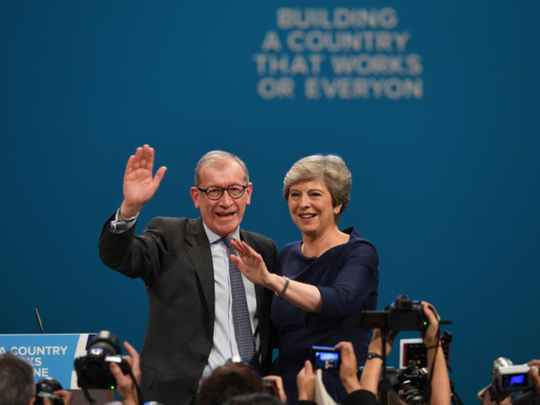
The whiff of 1997 is in the air. The British Government is in chaos and scandals abound. Labour leader Jeremy Corbyn is strutting the country displaying his bright plumage to prospective supporters in the hope and expectation that they will give him a chance to govern. And why wouldn’t they? With the Tories split over Europe, a new minister gone every week, and the ghost of John Major waving his arms in the background, a Labour government would seem the obvious next step for Britain.
But there is one crucial difference between 1997 and 2017. During Major’s final years in government, the opposition, led initially by John Smith and then by Tony Blair, enjoyed stratospheric poll leads. One poll for The Daily Telegraph in January 1995 gave Labour a staggering 62 per cent of the vote and a lead over the Conservatives of 43.5 per cent. Even by May 1, 1997, it had a robust 13-point lead. Today, Corbyn’s Labour is struggling to escape the margin of error, vying with the Tories at around 40 per cent. It’s as if there is an invisible ceiling for Labour’s support. What’s going on?
There is no doubt that Labour’s fortunes have been transformed since the start of the general election campaign earlier this year. Then, some polls predicted the party might fall to a derisory 25 per cent. Like all political partisans, Corbyn’s optimistic army of supporters see in the electorate whatever they need to see, and they have concluded that the public loves their man. But they are giving too much credit to his personal appeal and too little to the prime minister herself.
Britain fell out of love with Theresa May at precisely the same speed that it became enamoured of Corbyn. News coverage of his rallies left viewers with the inaccurate impression that Labour’s improving numbers were entirely due to positive reasons, rather than a dawning realisation that the incumbent leader simply wasn’t up to the job.
Then there’s the inescapable fact that, not so long ago, Corbyn was shouldering the blame for his party’s calamitous fall in the polls following the European Union referendum in 2016 — a collapse that included the worst by-election result in decades and some of the worst local election results in a generation. These were real people casting real votes, and the reasons they rejected Labour and its leader at the time were real, too.
A poll rating today of just over 40 per cent is not necessarily an indication that these voters’ reservations about Corbyn’s politics and his dubious past associations have been addressed. Rather, Labour’s healthy share of the vote reflects a severe polarisation of opinion; for every voter prepared to give Corbyn the benefit of the doubt, there is another prepared to vote tactically for the Conservatives in order to keep him out of Downing Street.
Indeed, Corbyn will always struggle to get away from his past. Many voters may suspend judgement on his meetings with convicted Irish Republican Army gunmen while the Troubles were ongoing and his gestures of friendship towards the militants of Hamas. Others simply refuse to believe the historical record, or don’t care either way. But not everyone will find it so easy to overlook. Without such skeletons in his closet, would Corbyn be further ahead? Would he then be seen as a more acceptable alternative to what we already have in Downing Street?
There also remains the fact that Labour is still a divided party. Few people really believe that the divisions between the so-called moderates and their hard-Left bosses have been healed by the recent display of unity. Ultimately, Blair’s advantage in 1997 was that few saw him as a real threat to the principles and institutions they held dear. He was a safe option even for Conservative voters to embrace — exactly the reason why so many on the Left continue to despise him. And despite the progress made by Corbyn (much of which was down to Prime Minister Theresa May’s inept campaign), his motivations and record remain suspect to many. He is a polarising figure who repulses as many people as he attracts — often for the same reasons.
That is not necessarily fatal to Labour’s hope of returning to government. It does, however, provide a clear signal to the Conservative Party that if they can get their act together, the future — or at least the next election — might still belong to them.
— The Telegraph Group Limited, London, 2017
Tom Harris is a former Labour MP and minister at the department for transport.










